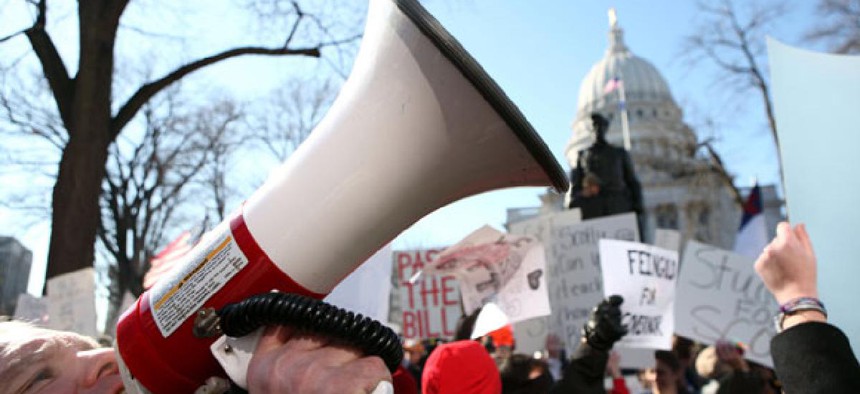
Suzanne Tucker / Shutterstock.com
The problem with public sector unions -- and how to fix it
Here's a plan to preserve the ability of government workers to bargain collectively -- one that would prevent the excesses that are destroying some communities' fiscal health.
With public employee unions suffering high-profile election losses in Wisconsin, San Jose, and San Diego, there is rampant speculation about what comes next. Noah Millman argues that voters and public sector unions have an inherently adversarial relationship. Says Will Wilkinson, writing in The Economist, "measures limiting the power of public-sector unions to organize against taxpayers are controversial, but not as politically dangerous as Democrats would like."
Suffice it to say that we're years away from any stable, widely accepted equilibrium. As Natasha Vargas Cooper put it some months ago in Slake, "A critical tactic in the conservative drive to build a permanent majority in Wisconsin and other Rust Belt states is to bust the unions under the guise of 'emergency' austerity measures. Walker's plan cuts right to the marrow of a labor movement that he, and just about everybody else, thinks is tottering on its heels. If it dies, one of the last major funding sources for Democrats dies, too." It is very thorny to tease out the motivations of partisans on this subject, because it's just a fact that strong public employee unions hurt the electoral chances of Republicans and help to fund and elect Democrats. It's also true that lots of states and localities are going broke due to pension obligations.
Read the full story at The Atlantic.
(Image via Suzanne Tucker/Shutterstock.com)






